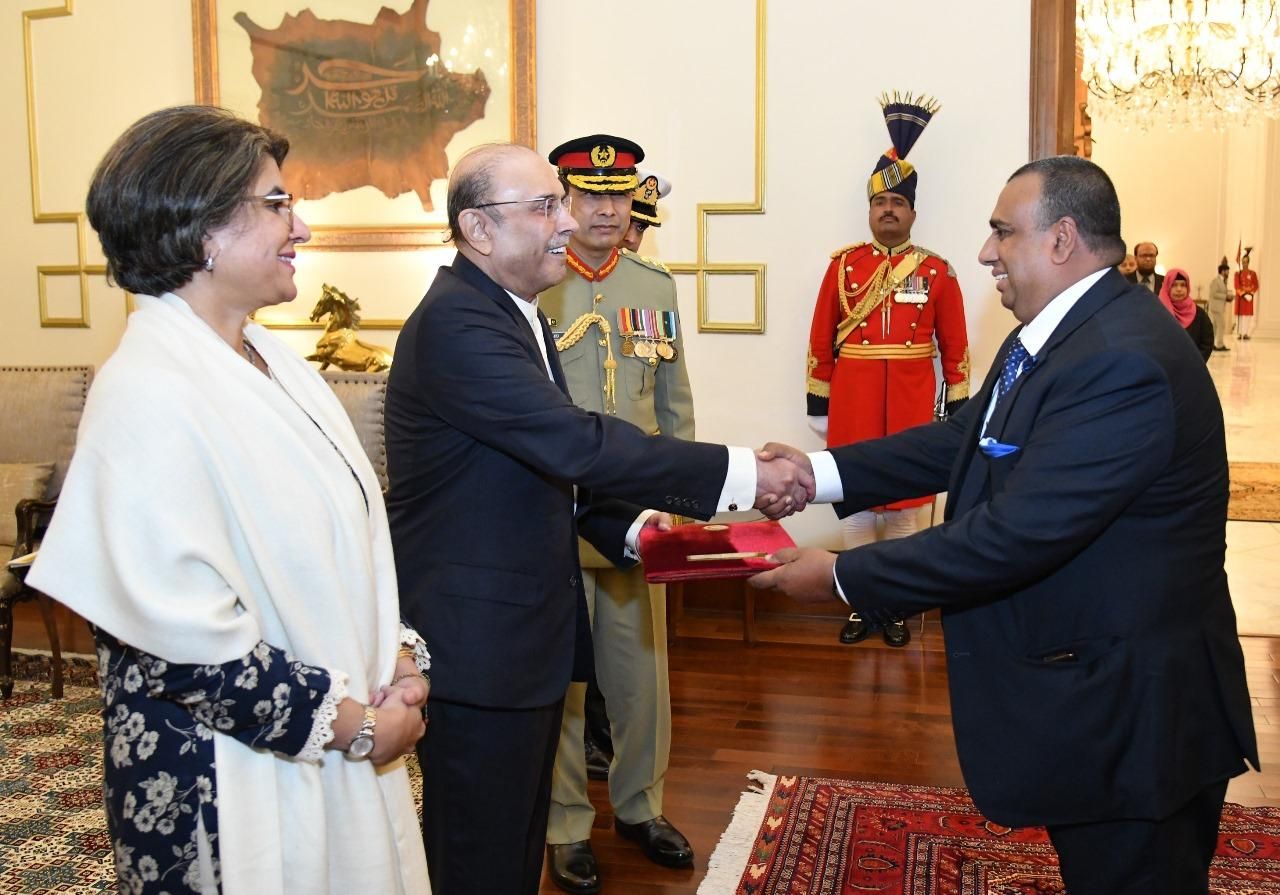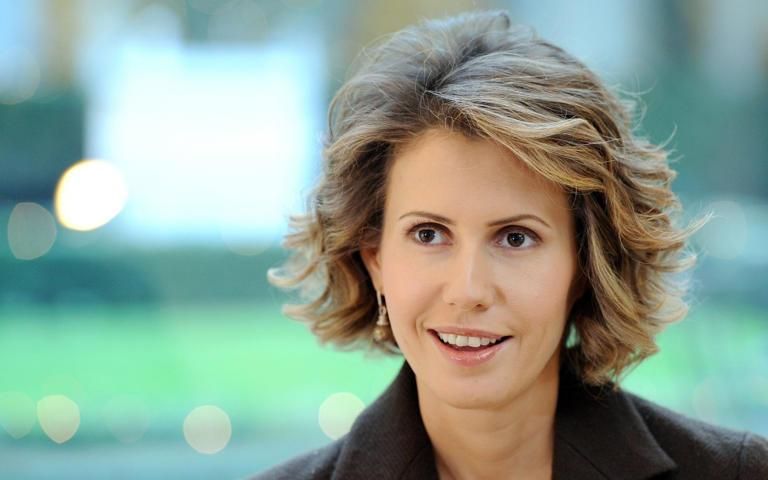Since the ouster of former Prime Minister Sheikh Hasina through a mass-uprising on August 5, 2024, Dhaka–Islamabad ties gets new dimension with both countries have started working on rebuilding relations that suffered heavily during the last 17 years, said policymakers, diplomats and business leaders.
Bangladesh-Pakistan social and cultural connectivity that lost momentum during Sheikh Hasina’s dictatorial regime between 2009 and 2024 is expected to revive in the new environment, said policymakers, diplomats and business leaders.
The relation with Pakistan reached a historic law during the last 10 years as the Bharatiya Jatiya Party (BJP)-- as the religious political party—has been in power in New Delhi since 2014….
The BJP seems to have persuaded Sheikh Hasina, the ousted dictator Prime Minister of Bangladesh, to maintain rivalry and hostility with Pakistan during the last 10 years
‘The increasing social, cultural and economic engagement between Bangladesh and Pakistan is a matter of concern to the Indian politicians, policy-makers and diplomats,” said Bangladeshi diplomats, now working in India.
Meanwhile, newly-appointed Bangladeshi High Commissioner Md Iqbal Hossain presented his credentials to Pakistan President Asif Ali Zardari at the presidential palace in Islamabad today (24 December), officially marking his role as the High Commissioner of Bangladesh to Pakistan.
The Pakistani Ppresident welcomed the high commissioner, urging him to work towards strengthening overall relations between Bangladesh and Pakistan, and assured him of his cooperation.
The High Commissioner thanked the president and expressed his intent to foster high-level exchanges and multi-dimensional relations between the two countries.
Md Iqbal Hussain Khan said that like EU and ASEAN countries, South Asian countries would work together closely to emerge as a prospective, progressive and resourceful countries to come out of poverty, hunger and malnutrition………….
Meanwhile, Pakistani musician Rahat Fateh Ali Khan enthralled the audience as BPL Music Fest kicked off the Festival of Youth 2025 at the Sher-e-Bangla National Cricket Stadium in Mirpur recently.
The versatile singer kept close to a 10,000-strong crowd at the home of Bangladesh Cricket enchanted with his soulful renditions of songs ranging from Qawwali and Sufi to popular Bollywood numbers. His virtuoso performance, which featured among others, Allahu Allahu, Tere Bina, Tere Rashqe Qamar, Afreen Afreen, Tere Mast Mast Do Nain, was complemented by his talented ensemble which included his son, Shazmaan Khan.
Rahat Fateh Ali Khan’s performance following that of popular Bangladeshi band Miles was also a respite from the annoyance caused by a poor sound system in place during the seven-hour-long show — something that has almost become a norm with the concerts in Dhaka these days.
Renowned Pakistani singer Atif Aslam on November 29 enthralled Bangladeshi audiences at the "Magical Night 2.0" concert at Bangladesh Army Stadium. Earlier this year, he performed at the Bashundhara Sports Complex
Meanwhile, Bangladesh and Pakistan have launched new direct shipping route between Chattogram Port and Karachi Port that business leaders of the both countries are expecting to boost economic engagement between the two counties.
The service, launched by Dubai-based container shipping company Feeder Lines DMCC, has already completed two successful voyages, significantly reducing shipment time and costs for importers.
Earlier, goods from Karachi had to transit through various ports like Colombo, Singapore and Dubai, adding at least 20 days to the journey. The new direct route has slashed transit time to just 11 days, offering importers a more reliable and cost-effective option.
Khairul Alam Suzan, vice president of the Bangladesh Freight Forwarders Association, told TBS, "Earlier, there was no certainty about the delivery time of imported goods from Pakistan, as there were often delays at transshipment ports."
A Panama-flagged vessel, YUAN XIANG FA ZHAN, completed its second voyage to the Chattogram port yesterday, carrying over 825 TEUs (twenty-foot equivalent units) of cargo, more than double the amount of the first voyage.
The cargo included various commodities such as sugar, soda ash, denim fabric, yarn, dolomite lumps, natural dolomite, dried fish, UPS, potatoes and radiator cores.
Businesspeople say importers of industrial raw materials will now have the certainty of obtaining their goods within a set period. As a result, the volume of imports and exports with Pakistan is expected to increase further, they say.
Anis Uddin Dowla, executive director of Karnaphuli Limited, was optimistic about the future of the route. "The overwhelming response from businesses, as evident in the increased cargo volume on the second voyage, is encouraging," he said.
Shafiqul Alam Jewel, vice chairman of the Bangladesh Shipping Agents Association, said direct shipping between Chattogram and Karachi has increased the volume of imported goods. At the same time, it will boost exports to Pakistan as well, he said.
Meanwhile, Bangladesh Chief Adviser Professor Muhammad Yunus recently urged Pakistan Prime Minister Shehbaz Sharif to settle the issues of 1971 to help Dhaka move forward with its relationship with Islamabad.
"The issues have kept coming again and again. Let's settle those issues for us to move forward," he said during a meeting with Pakistan premier Shehbaz Sharif at a hotel in the Egyptian capital of Cairo on the sidelines of the D-8 summit.
Sharif said the 1974 tripartite agreement involving Bangladesh, Pakistan, and India settled things, "but if there are other outstanding issues," he would be happy to look at them.
Prof Yunus said it would be nice to resolve things "once and for all for the future generations."
They agreed to strengthen relations between the two countries through increased trade, commerce, and exchange of sports and cultural delegations.
The two leaders also expressed their desire to extend cooperation in new areas like sugar industry and dengue management, according to a message.
Prof Yunus and Sharif discussed issues related to mutual interest, including the revival of the SAARC - a key feature of the foreign policy announced by the Chief Adviser after he took over as the head of the Bangladesh's interim government.
The 2006 Nobel Peace Laureate also spoke about his government's plan to carry out "essential reforms" and hold the general election before mid-2026.
He said he is leading a consensus-building commission to hold dialogue on the reforms.
Pakistan Prime Minister Shehbaz Sharif called for a strategic relationship between Dhaka and Islamabad.
"We are really looking forward to strengthening our relationship with our brother-in-country Bangladesh," Sharif said.
He hailed Prof Yunus for his initiative to revive SAARC and urged Bangladesh to work on the possibility of holding a summit of the regional body.
"This is a top priority," Prof Yunus told Sharif.
"I am a big fan of the idea of SAARC. I keep harping on the issue. I want a summit of SAARC leaders even if it is only for a photo session because that will carry a strong message," he said.
The Pakistan premier offered technical support to better manage Bangladesh's state-run sugar mills.
He condoled the deaths from the dengue outbreak in Bangladesh and added Dhaka could benefit from Pakistan's experience in combating the disease.
"Our fight against dengue in Punjab about a decade ago was hailed as world-class. We can send a delegate to Bangladesh for sharing our experience with Bangladeshi officials," he said.
Yunus thanked Sharif for his support and hoped Pakistan and Bangladesh would continue these efforts.
Pakistan's Foreign Minister Ishaq Dar and Bangladesh Chief Adviser's Special Envoy Lutfey Siddiqi were, among others, present on the occasion.
Siddiqi invited Pakistan Foreign Minister Dar to visit Bangladesh in February on his way to Malaysia, and he accepted the offer.
Pakistan Prime Minister Sharif also invited Prof Yunus to visit their country at his convenience.
Meanwhile, Mahfuzur Rahman, former Deputy High Commissioner to Pakistan, while talking to this correspondent said that the political will of Bangladesh and Pakistan will improve social and cultural relations between the two countries. Though the trade between two South Asian countries is below one billion US dollars, business leaders of the two countries can work under new environment to increase to the tune of 2 billion US dollars in few years. He, however, has expressed his views that Pakistan should condemn the 1971 genocide and give proper compensation to Bangladesh. He also shared his thoughts that the new generation of Pakistan have interest about Bangladesh that has attained enviable economic success in the last 50 years. On social and cultural relations, political leaders of both countries should ease the visa process that suffered during 2009-2024……
Imran Saeed Khan, a business leader and commercial consultant of S&W Seed Company in Pakistan said “ The young generation of Pakistan are eager to develop social and cultural relations with Bangladeshi youths. The economic and social development of Bangladesh over the last 50 years has created an interest among the young generation of Pakistan. “said a Pakistani businessman
The young generation of Pakistan condemned the killing of The military dictator General Agha Muhammad Yahya Khan, known as Yahya Khan and his cohorts and genocide committed in 1971………., Imran Saeed Khan, a business leader and commercial consultant of S&W Seed Company in Pakistan. Agha Muhammad Yahya Khan (4 February 1917 – 10 August 1980) was a Pakistani army officer, who served as the third president of Pakistan from 1969 to 1971……..Agha Muhammad Yahya Khan is known as ‘butcher’ to Bangladeshis as he was mastermind of genocide committed in 1971.
Meanwhile the Bangladesh -Pakistan trade that are expected below potential levels can flourish in the coming days as the political leaders of both countries have reiterated commitment to increase their engagement ……..Both countries will start issuing tourist and business visas that will help expand economic engagement between two countries.
The Russia-Ukraine war, political and economic mess in Pakistan and economic crisis in Bangladesh during the later part of Sheikh Hasina’s rule stand in the way of promoting trade between two countries, said economists and business leaders.
Sources said Bangladesh-Pakistan trade crossed the 1.00 billion US dollar mark during 2021, but later dropped to nearly 800 billion US dollars, sources in Dhaka and Islamabad said.
While talking to this correspondent, leaders of the Federation of Bangladesh Chambers of Commerce and Industry and Chittagong Chambers of Commerce and Industry said that business leaders of Bangladesh will work to increase trade with Pakistan.
A BGMEA leader said that Bangladesh can increase import of textiles and cotton from Pakistan reducing dependence on China and India provided Islamabad ensures competitive prices, quality and delivers goods in time. He has laid emphasis on direct air connectivity between Dhaka and Karachi to help grow the business.
He also laid emphasis on speeding up and easing visa process , specially business visas indicating political will of the both countries.
Meanwhile, Adviser for the Ministry of Textiles and Jute Brigadier General (retd) Sakhawat Hossain sought Pakistani investment in Bangladesh's textile and jute sectors.
"Pakistani investors can come forward to invest in the closed state-owned textiles and jute mills in Bangladesh … They can invest in other sectors as well," he said when Pakistan High Commissioner to Bangladesh Syed Ahmed Maroof made a courtesy call on him at his Secretariat office.
Commending local jute-made golden bags, the Pakistani envoy expressed his eagerness to invest in Bangladesh jute and textile mills.
The Pakistani diplomat also gave an invitation to Bangladesh to participate in the Textile Expo in Pakistan, scheduled to be held in October.
Stressing on enhancing commercial relations between the two countries, Textile and Jute Secretary M Abdur Rauf said Pakistani traders can import diversified jute goods from Bangladesh as more than 200 diversified jute goods are being displayed at the Jute Diversification Promotion Center (JDPC) under the ministry.
Apart from this, the Pakistani high commissioner proposed launching direct shipping transport between Pakistan and Bangladesh.
"The system will help to take forward the eco-social relations of the two countries," he said.
To materialise the goal, he said, Bangladesh Shipping Corporation and Pakistan Shipping Corporation can jointly work to this end……..
Meanwhile, Pakistani High Commissioner in Dhaka Syed Ahmed Maroof called on Adviser for Posts, Telecommunications, and Information Technology Nahid Islam at the latter's office recently.
During the meeting, they discussed on various issues including cooperation in media, sports, youth and culture and information technology, a press release said.
The Pakistani High Commissioner prayed for the eternal peace of the departed souls of those who were killed in the recent student-led mass-uprising.
He also supported the interim government of Bangladesh saying that Pakistan is keen to establish relations with Bangladesh.
The envoy hoped that Bangladesh and Pakistan can work jointly in the field of information technology.
In the second week of September, the high commissioner invited the adviser to the Urdu department of Dhaka University.
He also invited Nahid to attend another event of 'Qawwali song' to be held at the initiative of the Pakistan High Commission.
Nahid, also adviser for information and broadcasting, said: "We are interested in developing relations by solving the issues of 71 for national interest."
The Pakistani High Commissioner said: "We want to solve the 1971 issue."
"But the previous government did not give us any opportunity to discuss and kept the 71 issue alive. It could have been resolved long ago," he added.
Meanwhile, Bangladesh Nationalist Party (BNP) wants to increase bilateral and regional cooperation with all countries maintaining a level playing field.
The party made the observation after a meeting between BNP Secretary General Mirza Fakhrul Islam Alamgir and Pakistan High Commissioner to Bangladesh Syed Ahmed Maroof at the BNP chairperson's Gulshan office here on August 23, 2024……
Bilateral issues, including trade and business between the two countries, and regional cooperation came up for discussion in the around one-hour meeting.
BNP Standing Committee Member Amir Khasru Mahmud Chowdhury and Special Assistant to the BNP Chairperson's Foreign Affairs Advisory Committee Member Shama Obaid were present at the meeting.
Briefing reporters about the outcomes of the meeting, Amir Khasru said they discussed the bilateral issues between the two countries.
"Everything between the two countries, including trade and business, and economic relations have come up for discussion," he said
Amir Khasru said there was discussion about taking the bilateral ties forward, protecting the two countries' independence and sovereignty, and upholding mutual respect and dignity.
"The issue of our regional cooperation in the entire South Asia was also discussed. The potentials between the two countries, particularly trade and business and economic prospects, were discussed," he said.
The BNP leader said actually business based on comparative advantage, which was missing in Bangladesh for a long time, was discussed.
He said there was patronization in particular business here, which benefited some individuals in terms of the bilateral trade and business.
"There was no level playing field. We have discussed that there is going to be a level playing field in Bangladesh and we will cooperate based on comparative advantage, maintaining the level playing field between the two countries," he said.
Talking about regional cooperation, he said the issue of strengthening regional cooperation within South Asia was also discussed.
Noting that the South Asian region is the least integrative area, Amir Khasru said it needs to enhance the integration in this South Asian region not just in case of economic issues but in all aspects. "It has been discussed in detail how we can move forward," he said.
"We want to move forward on the basis of BNP's foreign policy -friendship with all. We want to move forward with all kinds of economic cooperation amid good relations between the two countries," he added
He mentioned that they will take forward the bilateral and regional cooperation by maintaining the level playing field.








.svg)




